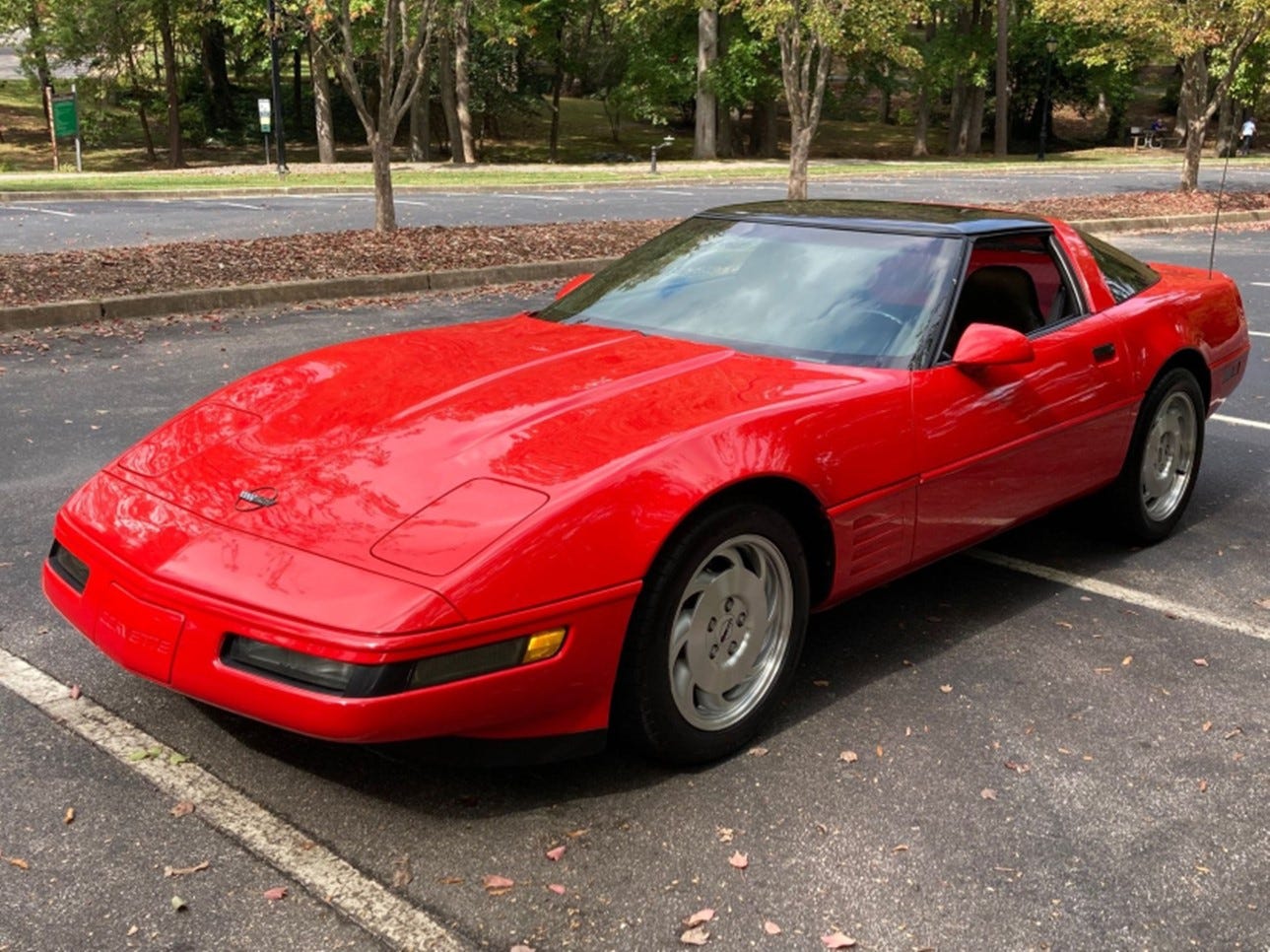In November 2023, my wife Banu and I embarked from New York on what I called at the time “a holy adventure.” We planned to pursue the next chapter of our ministry but had little awareness of what lay ahead. Regrettably, that included my mom’s suffering a stroke on New Year’s Day. She declined in health until she died in the wee hours of Sunday morning, February 18. That set in motion numerous realities, including some life lessons for us.
At the same time, the path of “holy adventure” led us (and has led us) through spiritual discernment, rediscovering our course of ministry, as well my twice being bitten by our dog.
[I’m not sure this is the model mentioned in the story!]
(Note: we have since returned to New York.)
I must confess, I’ve never considered myself to be particularly adventurous. Although, I do recall a parishioner at the first church we served, which was in Nebraska. He had a red Corvette, and he invited me to drive it. We went out on the nearby highway, with its long straightaway. How deliciously enticing! So off we went. I looked at the speedometer, and I couldn’t believe how quickly I got to 60. It was a scant few seconds.
Upon our return, I told him it’s a good thing I never had a car like that. I would have definitely gotten into trouble with it!
Having said that, Banu and I have experienced the well-known truism when one door is closed, another door is opened. The question is, will we proceed down the new direction God is apparently providing? As we follow these twists and turns, new wisdom is imparted. If we are “open” to it, our growth is increased.
Consider the apostle Paul in Acts 16. He and his friends were traveling through Asia Minor—modern day Türkiye (Turkey). We read in verse 7 “they attempted to go into Bithynia, but the Spirit of Jesus did not allow them.” (The designation “Spirit of Jesus” only appears here, but I won’t go into it right now!) Paul and his party could have pushed on to Bithynia, ignoring whatever barrier must have been presented. However, they made a detour to Troas. That night, the apostle had a vision of a man from Macedonia, pleading for help.
Thus, they crossed over into Europe and in Philippi encountered a woman of means named Lydia, who had a business dealing in purple cloth—a valuable commodity. She and her household are baptized after listening to Paul’s message. Lydia offers her home to the group as a bit of respite. Before leaving the city after some rather violent events (see verses 16-39), they stopped at Lydia’s place to encourage the people there and to bid them farewell.
[Lydia, on an adventure to the future.]
One door was closed, and another door was opened. The adventure continued.
I have recently posted some thoughts regarding Jordan Peterson’s book, We Who Wrestle with God. I have discovered his quite frequent use of the word “adventure.”
I commented earlier this month on his observation of Cain. He says Cain fails to establish “the proper relationship with what is highest.” Therefore, “he deprives himself of what could be the true romantic adventure of his life; the adventure that might justify that very life and provide it with the significance that is the most effective antidote to nihilistic bitterness and resentful rebellion.” (129) The true romantic adventure of his life.
Here are a few more adventuresome samples:
“…truth is the ultimate adventure.” (244)
“For it is true adventure, not the falseness of the lie, that constitutes the truly and necessarily sustaining meaning in life.”
“[Abram] swears to alter his aim, and to accept, even welcome, whatever comes his way, along the pathway of the truth. It must be understood: that is the acceptance of adventure itself.” (245)
And another reference, with Abram especially in mind, “The [one] who believes in the spirit of adventure is the one who hits the road.” (248) A universal truth is here spoken. The spirit of adventure leads us to hit the road in a multitude of ways.
Unfortunately, some adventure turns out to be misadventure. Mis-, as in “bad” or “wrong.” There might be a wrong turn. Bugs Bunny often lamented, “I knew I should have taken that left turn at Albuquerque!” Poor Bugs, “the falseness of the lie” can insinuate itself into the truth; it can pose as the true way.
Like Bugs Bunny, I have also missed left turns, though not at Albuquerque. Along the path, I have had my own misadventures. They haven’t been anything life-threatening, but they still deserved that “mis-” at the beginning. To my shame, I have too often hidden my light under a bushel basket. There are times when I should have been more open, but instead I held back. I hesitated when called upon.
But revisiting the comment about moments not being life-threatening, I feel like I need to revise that. For example, I long ago lost count of the times when driving my car, I was seconds from a horrible crash. A slippery spot on the road… a near miss with another vehicle… an instant of inattention… God has deployed some traffic-directing angels to guard the way!
At every moment we are held by the Lord. And yet, as Peterson notes, “At every moment of consciousness, we are fated to wrestle with God.” (xxxi) They are not moments of passivity, but of struggle.
And perhaps that struggle can be translated into science. On that bit of each moment, considering time and space, NYU professor Charles Seife says in his book Zero there is evidence that at every point in space, there are particles constantly winking in and out of existence. The very warp and woof of spacetime is charged with wonder. (172)
If we go along with Seife’s view, an interesting question is raised. Are we ourselves moving in and out of existence? Are the seemingly infinite specks constituting everything we are the very definition of ephemeral? Creation is an ongoing reality. We are sustained by the power of the Lord. Furthermore, because we are constantly being created, in a real sense our future choices are unknown, even to God. And if we accept that premise, it speaks volumes to the sense of adventure, a road through life itself.
That amplifies the nature of our struggle, our wrestling match with God. It can be surprising and enlightening to see how our decisions, in effect, create a new world. In some small way, we create a new cosmos. Or perhaps I should say, we co-create with our Creator.
A few moments ago, there was a note about “the spirit of adventure.” John 3 says a little something about that spirit—or wind (πνευμα, pneuma). “The wind blows where it chooses, and you hear the sound of it, but you do not know where it comes from or where it goes. So it is with everyone who is born of the Spirit” (v. 8).
The Lord has come and granted us the greatest adventure: to be as free as the wind.







